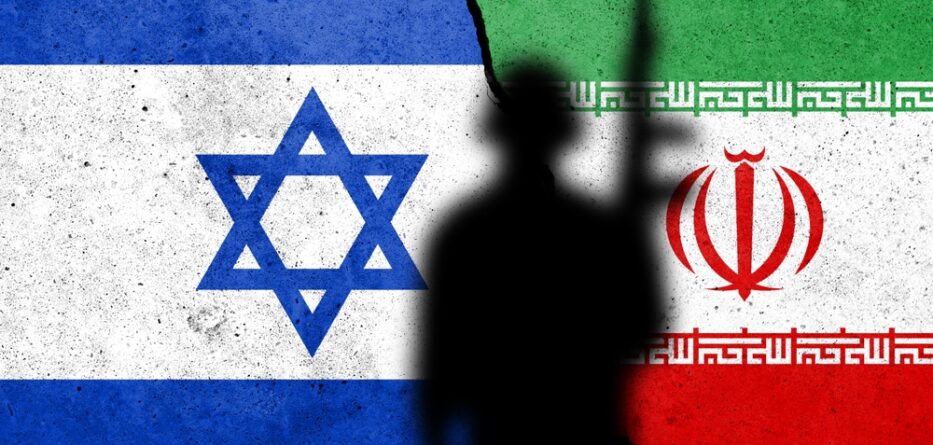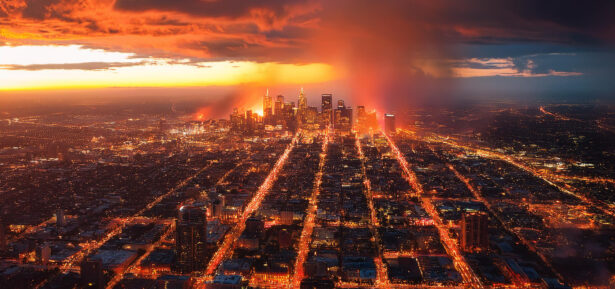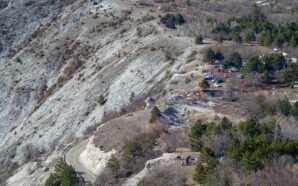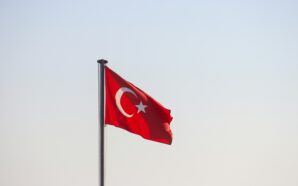
Tensions Soar as Iran Launches 100 Drones at Israel
Tensions in the Middle East reached a boiling point early Friday as Iran launched over 100 drones toward Israel in a direct and swift retaliation for a massive Israeli airstrike targeting Iran’s nuclear and military infrastructure.
The aerial assault comes just hours after Israel, in a high-risk operation named “Strength of a Lion,” deployed over 200 fighter jets in what Prime Minister Benjamin Netanyahu described as a “necessary act of self-defense” to neutralize what he called an “imminent threat of nuclear holocaust.”
“The Jewish state refuses to be a victim of a nuclear holocaust,” Netanyahu declared in a nationally televised address. “We will never allow those who seek our annihilation to obtain the means to achieve it.”
Israel’s Bold Strike: Aimed at the Heart of Iran’s Nuclear Program
The Israeli military campaign, launched under the cover of darkness, struck deep into Iran’s heartland — including the Natanz uranium enrichment facility, missile storage sites, and command centers believed to be directing Iran’s nuclear ambitions. Israeli officials say the strikes were precise and strategically aimed at dismantling Iran’s ability to produce nuclear weapons.
According to the International Atomic Energy Agency (IAEA), the Natanz facility was indeed hit, confirming Israel’s direct attack on Iran’s core enrichment capability.
Iran’s Response: Drone Swarm and Vow of “Severe Punishment”
Within hours, Iran’s Supreme Leader Ayatollah Ali Khamenei condemned the airstrikes, calling them a “crime against our beloved country.” In response, the Islamic Republic launched a wave of more than 100 explosive drones toward Israel.
“All of Israel’s defense systems are activated and operating to intercept the incoming threats,” said IDF spokesperson Brig. Gen. Effie Deffrin. “The drones are expected to reach Israeli airspace within hours, and we are fully prepared.”
Iranian state media described the drone campaign as the beginning of a “decisive response,” warning of additional retaliatory measures if further strikes occur.
Top Iranian Officials Killed in Israeli Operation
Iranian media has confirmed that several high-ranking officials and nuclear scientists were killed in the Israeli strikes, including:
- Gen. Mohammad Bagheri, Chief of Staff of Iran’s Armed Forces
- Gen. Hossein Salami, Commander of the Revolutionary Guard
- Fereydoun Abbasi, Former Head of Iran’s Atomic Energy Organization
- Mohammad Mehdi Tehranchi, Nuclear Physicist and University President
Additionally, the Revolutionary Guard’s headquarters in Tehran was reportedly engulfed in flames, with multiple explosions heard throughout the capital.
U.S. Stance: “We’re Not Involved—But Iran Must Not Target Us”
The United States quickly distanced itself from the Israeli operation. In a press briefing, Secretary of State Marco Rubio stated:
“The U.S. had no role in Israel’s actions. However, we warn Iran not to target U.S. personnel or facilities in the region.”
Former President Donald Trump, speaking live on Fox News, emphasized diplomacy and urged Iran to return to nuclear negotiations scheduled for this Sunday in Oman.
“They could be a great country,” Trump said. “But they must completely give up hopes of obtaining a nuclear weapon.”
Israel on High Alert, Public Life Disrupted
Following the strike and in anticipation of Iranian retaliation, Israel has:
- Closed its national airspace
- Cancelled all commercial flights
- Ordered bomb shelter readiness across major cities
- Cancelled public events, including the Tel Aviv Pride Parade
Defense Minister Yoav Gallant and military chief Lt. Gen. Eyal Zamir have warned that Israel is prepared for a prolonged conflict if necessary.
“Anyone who dares challenge Israel will pay a heavy price,” said Zamir.
Looking Ahead: Diplomacy or Further Escalation?
With global powers urging restraint, the question remains whether this dramatic exchange marks the start of a broader war—or a turning point toward renewed negotiations. The IAEA’s latest report indicates Iran has stockpiled enough enriched uranium for multiple bombs, while 19 nations on its board recently condemned Tehran for violating nuclear agreements.
“This is not the end,” Netanyahu cautioned. “We will take whatever action is necessary to protect our people.”
As the world watches this rapidly evolving crisis, both diplomacy and devastation remain on the table.
Should the Pentagon Really Be Using Microsoft’s AI?
-
On the eighth day of the track and field events at the 2024 Paris Olympics, Arshad Nadeem of Pakistan...
-
The recent anti-immigrant riots in the United Kingdom serve as a stark reminder of how unchecked misinformation on social...
-
In a tragic turn of events, the death toll from two landslides in a remote region of southern Ethiopia...
-
In a dramatic and unprecedented public declaration, Shaikha Mahra bint Mohammed bin Rashid Al Maktoum, daughter of Dubai’s ruler,...
-
China’s foreign minister Wang Yi has strongly refuted NATO’s accusations that Beijing is aiding Russia in its war on...
-
The highly anticipated wedding of Anant Ambani, the son of Asia’s richest man Mukesh Ambani, is set to culminate...
-
Turkey has unexpectedly backed Greece in its ongoing effort to reclaim the Elgin Marbles from the United Kingdom, describing...
-
Turkey’s inflation rate has soared past 75% in May, marking what economists believe to be the peak of the...
-
Iranian authorities have confirmed that President Ebrahim Raisi and seven other officials were killed in a helicopter crash on...
-
As the United States continues its support for Ukraine, FBI officials are closely monitoring the possibility of increased Russian...
-
Presight, an Abu Dhabi-based artificial intelligence firm, has finalized the acquisition of a 51% stake in AIQ, a prominent...
-
The city of Dubai is reeling from the aftermath of historic torrential rains that inundated the desert metropolis, leading...




















